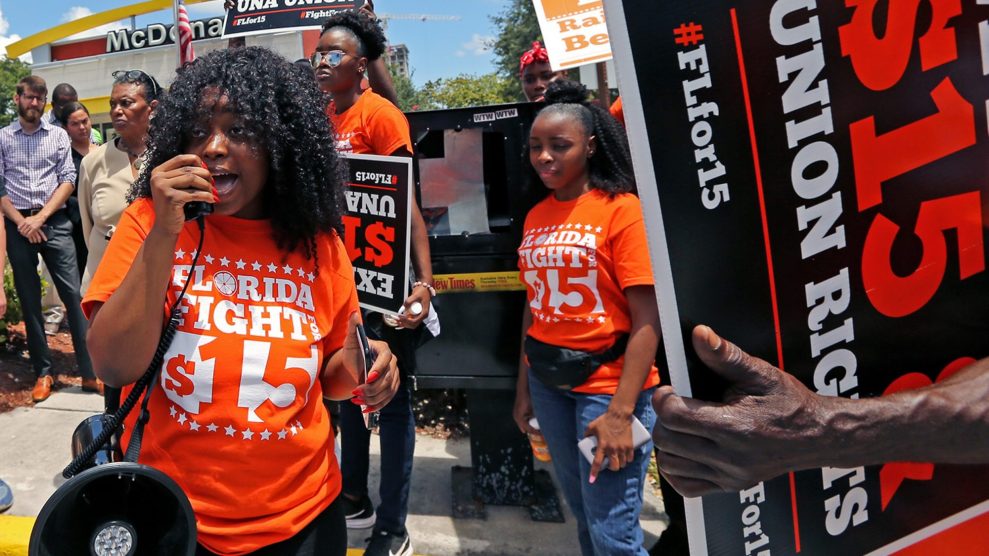
Since 2012, the "Fight for 15" Movement has helped push more than a dozen states to adopt a path to a $15 or higher minimum wage.David Santiago/Miami Herald/Tribune News Service/Getty
Workers across the country are kicking off the new year with bigger paychecks, thanks to minimum wage increases that took effect yesterday in 22 states and 43 cities and counties, according to a report from the National Employment Law Project.
Six of those states—California, Connecticut, Maryland, New Jersey, New York, and Washington—now have a minimum wage that reaches or surpasses $15. The increases should disproportionately benefit Black, Hispanic, and female workers who make up more than half of the workers receiving pay bumps, according to an analysis from the Economic Policy Institute.
The raises follow the decade-long “Fight For $15” movement, which has helped push more than a dozen states to adopt a path to a $15 or higher minimum wage—more than double the federal minimum wage of $7.25, which has been in effect since 2009. And that movement is unlikely to stall anytime soon. This year, another three states and 22 jurisdictions will also raise their minimum wages. Twenty of these increases will be to $15 or more for some or all employers; 15 places will reach or exceed $17, according to NELP data.
As NELP notes, there are also several ballot measures and legislative campaigns underway seeking to raise the minimum wage slated to be decided this year: A California ballot measure to raise the minimum wage to $18 by 2025-2026 and a Massachusetts legislative campaign seeking a $20 minimum wage by 2027. Democratic lawmakers have also introduced a bill that would raise the federal minimum wage to $17 by 2028.
President Biden pledged to bring about a $15 federal minimum wage before it was stripped from the stimulus bill in 2021. Ahead of this year’s elections, it could be a good effort for Democrats to renew: polling has shown that most Americans—and a majority of Democrats—support a $15 federal minimum wage.

















